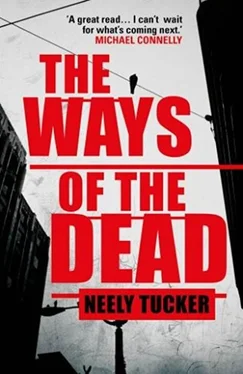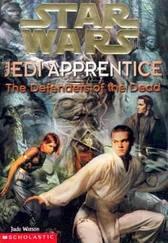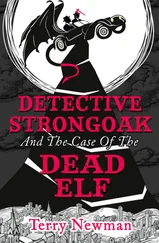“So you can’t arrest nobody unless you get lucky?” It was the man at the microphone. He hadn’t moved.
“Pretty much,” Jensen said, “if by getting lucky you’re including witnesses who’ll testify. People kill people and then they hide. They don’t call us up and tell us about it. They don’t shoot each other in front of the precinct. So they have to leave something behind. Or they have to be seen. They have to screw up. Or, as you put it, we have to get lucky.”
“When you going to search the rest of the houses?”
It was a man’s voice, plaintive but demanding, coming from the far side of the room.
“I’m sorry?” Jensen said.
“The rest of the houses. When you going to search them? That Pittman girl turned up under one. You know how many abandoned houses there are around here? My daughter, she’s been missing a month now-”
Sully’s cellphone buzzed. Shit. It was R.J. He lingered long enough to hear the man’s last name, Williams, and then quick-stepped to a side door, out into a hallway.
“Sully! Lad!” the voice boomed into his ear. “So wonderful to hear your voice, particularly since we haven’t seen you in the newsroom. How are your peregrinations into the demimonde of our fair city? I trust you have not contracted any communicable diseases.”
“I’m at this community meeting, over on Princeton. Working the streets to-”
He paused to listen.
“I’m going to need a few more days,” he said. “Escobar wasn’t so much in the life like we thought. Dug up her, what is it, sort of stepfather. Nobody’s talked to him before. And I found Noel Pittman’s sister. Was actually out there for the funeral.” Another pause. “Out in Colesville. She wasn’t friendly.”
R.J. spoke for a while.
“Hey, man, I know nobody cares,” Sully said, pacing, his shoes clicking on the tile floor, still jittery, still wired. “We’re going to make them care, okay? But you gotta give me some time. I’m up to my ass out here in hookers and illegal immigrants and, funny thing, they don’t like white guys with notebooks, right? Turns out there may be some girls missing up here, too, not just dead, so tell Melissa to pipe the fuck down.”
He clicked the phone off and yanked open the door to the gym. The meeting was breaking up, the stage empty.
David Belham, the Ward 1 councilman, had come in front of the podium, into the center of a cluster of people, writing things down in a datebook and looking up at each constituent. You could see the man counting the votes. There was the woman who was the advisory neighborhood commissioner-no, he wasn’t going over to her, she was batshit crazy-and an MPD spokesman. The chief was somewhere in a larger knot of people. There were television cameras and lights around him. Sully looked, but didn’t see the Williams man anywhere. Jensen, there he was, working his way toward the door. Sully loped that way.
Taller than those around him, the man looked over their heads, saw Sully, and tensed, stopping, his eyes locking on him.
“You want to talk about the problem ?” he said, a loud stage voice, halfway to the people around him, halfway toward Sully. “Why don’t you go talk to this guy? Carter here’s the one who wrote the story.”
The trail of people around Jensen, elderly homeowners, a young activist, four or five women who looked indignant, stopped and turned, sizing him up.
Play it straight, he told himself. He smiled, making eye contact all around.
“I would have been happy to quote Detective Jensen in that piece if he had returned any of the three calls I made to him before I wrote it.”
“We don’t talk to reporters, particularly about open cases,” Jensen said, playing out the theater. “Everybody knows that.”
“An odd position for a man who just said he needed witnesses to talk in order for him to work.”
Jensen turned to the people around him. “Listen, thank all of you for coming out. If you have information about any of these cases, you got my card. Call us. We’ll come to you.”
He swiveled on a heel, turned, and walked. The crowd did not follow. They muttered among themselves, darting looks at Sully.
Someone bumped his right shoulder from behind, hurrying past in the crowd. Sully turned, halfway between an “Excuse me” and “Watch where you’re going.” He was surprised to see it was Doyle Goodwin.
“I need to see you tomorrow,” Doyle whispered at his ear, and then he was past him, melting into the crowd, the knots of people still forming and re-forming, their voices bubbling, the anger and tension in the room still fluttering, like cigarette ash that had been flicked into the air.
Just after nine the next morning, Sully edged the Ducati around stalled traffic on C Street, wedging it into a space between cars illegally parked in the designated “Motorcycles Only” spots.
He walked past five or six cars and there was the hot dog cart at the curb in front of the Department of Motor Vehicles. A half smoke with mustard and ketchup, lord yes, he ate it sitting on the steps, washing it down with some sort of crappy iced tea they sold in a glass bottle. He’d reached Doyle on the phone earlier, making plans to meet him at the store later in the day. The man had offered no clue as to what had been on his mind the night before, or why he couldn’t say what he had to say over the phone. This was annoying but it wasn’t like he was being Jensen, blaming him for homicides that cops couldn’t solve. Sully burped softly into his fist. Half smokes.
Just the other side of the two lanes was the U.S. District Courthouse, the federal seat of power, where the United States sued and was sued, where David Reese was the highest-ranking judge. It sat at the foot of Capitol Hill. Pennsylvania Avenue ran in front of it, America’s Main Street, and in the course of a dozen blocks to the west encompassed the Department of Justice, FBI headquarters, the U.S. Treasury, and the White House.
C Street, all of two blocks long, ran just behind the court, the ass end of it, and offered nothing but a portal into the shithole of Washington. The DMV squatted on one end, the great time-waster of urban bureaucracy, and upstairs, in the headquarters of the MPD, were the cops who plowed into the city’s drug deals, stolen cars, burglaries, phone scams, homicides, rapes, and beat downs, usually to little effect.
Next door, across a small park, was Superior Court, where the vast majority of defendants were no-papered the morning after their arrest, down in C-10, the same arraignment room that the Reese suspects had passed through. You could smell the depression in the room amid the piss and the plumbing and the burnt toast from the cafeteria down the hall. A tunnel ran between the court and MPD, used to shuttle defendants between the two without bringing them into daylight. If the defendants actually got charged, their plea bargains and their trials were heard in the brown-paneled courtrooms upstairs, where no one but a few family members and victims’ relatives were ever likely to show up.
Sully threw his foil wrapper and the bottle into a curbside trash can and walked in the DMV entrance, taking the back entrance into police headquarters, so that any beat reporters around the front entrance would not see him enter the place. He turned left and then right and walked around the long corridor, passing through security and heading for the Youth and Preventive Services division on the third floor, the dead end of missing persons cases.
The counter, a long marble divide that ran the length of the room, was not staffed. He stood there long enough to be noticed and a thickset woman in uniform pushed up from her desk in the back of the room and came to the counter and asked him what it was he thought that he wanted.
Читать дальше












